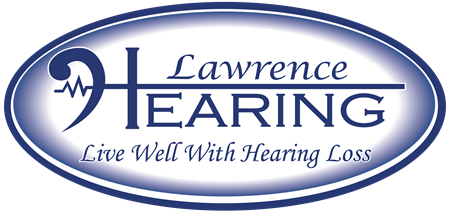Tinnitus Toolkit for Cozy Nights: Sleep Better This Fall
When the house finally gets quiet, tinnitus can feel louder—and bedtime turns into a battle. The good news: proven strategies can help you fall asleep faster, stay asleep longer, and feel better in the morning. Below is a practical, evidence-based toolkit you can start tonight.
First, a quick refresher: what is tinnitus?
Tinnitus is the perception of sound (ringing, buzzing, hissing, humming) without an external source. It’s common—about 10% of U.S. adults experience tinnitus in a given year. Many people also have some degree of hearing loss, which is why hearing aids can play a role in relief.
Why nights are tougher
In a quiet bedroom, your brain has fewer outside sounds to “compete” with tinnitus, so the internal sound stands out. Adding gentle background sound (see below) and using wind-down routines are two of the simplest, best-supported steps. Clinical guidelines endorse sound-based strategies and counseling-style approaches to reduce the distress tinnitus causes—especially around sleep.
Your fall sleep toolkit (step-by-step)
1) Add low-level sound to the bedroom
Use a bedside fan, white-noise/rain app, or a small speaker at just-audible volume so the room isn’t silent. This “sound enrichment” helps your brain pay less attention to tinnitus. (Hearing aids with sound programs or dedicated sound generators can do this, too.) ATA+1
2) Try CBT-style skills to settle the mind
Simple cognitive behavioral techniques—like brief worry journaling before bed, a 10-minute body scan, or reframing unhelpful thoughts (“I’ve slept through this before”)—can lower tinnitus-related distress and improve quality of life. CBT is recommended by major professional bodies and supported by randomized trials. Cochrane+1
3) If you have hearing loss, use your hearing aids
For many people with both tinnitus and hearing loss, restoring everyday sounds can make tinnitus less noticeable, especially in the evening. Guidelines recommend a hearing aid evaluation for persistent, bothersome tinnitus with hearing loss. AAO-HNS
4) Keep a steady evening routine
Aim for consistent bed/wake times, dim lights an hour before bed, and screen-free wind-down time. Pair this with your preferred sound (fan/rain) every night so your brain learns a reliable “sleep cue.” Guidance documents emphasize education, self-help strategies, and sleep support as part of management. NICE
5) Be smart about caffeine & alcohol
There’s no strong evidence that caffeine universally worsens tinnitus; many people tolerate a moderate, consistent intake just fine. If you notice a personal link, reduce gradually and monitor your own pattern. Keep alcohol modest; for some, it can fragment sleep. ATA
6) Protect your ears during the day
Loud tools and venues can spike tinnitus and make nights harder. Use ear protection for leaf blowers, concerts, or other high-dB settings; then give your ears “quiet time” before bed. (See our local noise post for specifics.) NICE

When to seek timely care (red flags)
Contact a clinician promptly if you notice any of the following:
-
Sudden hearing loss (within the last 30 days)—seek assessment within 24 hours.
-
Unilateral (one-sided) or pulsatile tinnitus.
-
Tinnitus after head/neck injury, or accompanied by neurologic symptoms (e.g., acute severe vertigo).
These patterns warrant targeted evaluation and, at times, imaging or urgent referral.
What real-world care looks like
-
Modern, guideline-aligned care typically includes:
-
Education & reassurance about tinnitus mechanisms.
-
Sound therapy / enrichment (standalone or via hearing aids).
-
CBT-based strategies to reduce distress and improve sleep.
-
Hearing aid evaluation when hearing loss is present.
-
This combined approach is recommended by leading organizations in audiology and otolaryngology.
Sleep better, feel better—locally
Lawrence Hearing offers FREE tinnitus consultations, precision hearing tests, and device options (including sound support) in Middletown & Warwick. We’ll tailor a plan that fits your routines—bedtime included.
📞 (845) 343-7708
Hear better. Live better. And enjoy the quiet side of the Hudson Valley.

